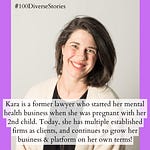About Kai Song
Co-founder and CEO of GuruLab, that has raised $1M in seed money to create an impactful learning experience for K12 English
Previously co-founded and grew two education non-profits
Ex- McKinsey consultant
MEng Information Engineering (Machine Learning) from University of Cambridge
Key a-ha moments from the podcast
To solve complex problems (especially in education and healthcare), it can be helpful to do some groundwork in the space, to truly understand what are the root causes of the problems
“I have been pretty active in the education non-profit space…I started my first non-profit just before I went to university, and during the pandemic I built my next non-profit…”
“This made me realise that there was a lot of benefit from having online learning programmes…and that is how GuruLab came about”
Find an easy way to test your idea as fast and as cheaply as possible
“[Initially], It feels like a very big cake to chip on, but what we did was quite hacky in the beginning. We wanted to test the proposition first, so we just did a Google Classroom, and got teachers to teach the concepts. I was the “bot” who kept track of the students’ answers and see if it was helpful to teachers….it helped us cut the cost without a complex engineer, but the concept could be validated
Test things that are fundamental to the existence of the business, don’t test the “fringes”
“Out of everything you want to test, pick what you think the business absolutely needs to be successful…it can be painful to see your baby fail, but it’s better to know in advance…it’s also about facing that fear of failure!”
Actions of potential users/customers is more powerful than what they say they may want
“What the teachers imagine they would be as an ideal teacher, vs the actual work required to build customised lessons, they resorted to standardised templates…made me realise that observing how your users react is always more beneficial than asking them to imagine the future”
Financial modelling is key (not as an answer but as a GUIDE) to inform next steps in funding and growing your business
“We did benchmarks of costs - we struggle the most in costing engineering needs, it’s really hard to gauge. I was lucky to work with product advisors that helped as well….at the end, these are just estimates and are not necessarily true, but it was a really helpful guide to go ahead with funding requests”
Kai Song’s advice to women who want to build businesses on their own terms
“When we [as a full female team] first started off, we were a bit more conservative thinking about things that may not work out or what we can improve, a bit too much…over time, we became more confident in exuding what we bring to the table in front of investors and customers”













Share this post